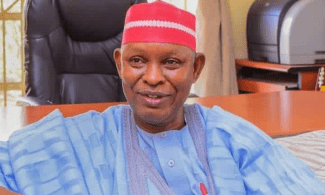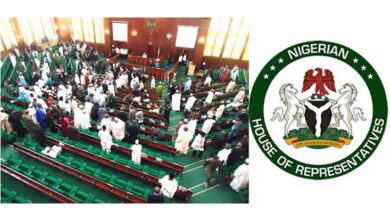Governor Obaseki hints of possible EFCC arrest any moment from now – Crime Channels

JUST IN; Governor Obaseki hints of possible EFCC arrest any moment from no
Governor Godwin Obaseki of Edo State hinted on Wednesday that the Economic and Financial Crimes Commission (EFCC) might come after him once his tenure ends.
Speaking in Abuja during the EdoBEST National Results-Sharing Session, themed “EdoBEST: A Legacy of Re-engineering Education in Sub-Saharan Africa,” Obaseki acknowledged the possibility of facing arrest, but insisted that he would view any time in detention as an opportunity for reflection and further research.
Addressing his critics and potential probes, Obaseki expressed confidence that he had nothing to fear, stressing that he had focused on delivering tangible reforms for the people of Edo State.
He dismissed accusations against him as “silly petitions” from individuals driven by personal vendettas.
The governor emphasized that his legacy would be defined by his administration’s commitment to education and public welfare, stating, “One of the things that will last for a very long time is the fact that we focused on what truly mattered to the people of Edo.”
Obaseki further added, “If the EFCC comes for me, I will face it. I’ve done nothing to hide. My eight years in office have been about reforms, not political games. I’ve worked for the people, and that’s what matters. If they choose to pursue political witch-hunts, that’s their issue, not mine.”
He also rejected claims that corruption was a driving force behind Nigeria’s challenges, instead pointing to systemic inefficiencies.
Obaseki highlighted the importance of strategic investment in human capital, stressing that Nigeria had ample resources but suffered from mismanagement.
“The issue is not a lack of money but a lack of trust and accountability. You have to lead by example, and that’s how we’ve raised resources for our projects,” he said.
The session also featured a keynote address by Professor Olubayi Olubayi from Kenya, who urged the Nigerian government to adopt India’s model of development, particularly through human capital.
Olubayi referenced India’s rise from poverty, driven by a focus on education and innovation, despite the country’s financial constraints. He suggested that Nigeria could similarly leverage its human capital for long-term growth, drawing comparisons with Singapore, which has a population similar to that of Edo State.
“India has leveraged ideas to overcome its poverty,” Olubayi noted.
“With its multiple languages and a massive population, India’s story should inspire Nigeria. Singapore, too, with a population of five million, offers another model of growth.”
Both leaders reinforced the critical role of education in shaping a sustainable future for Nigeria, underscoring the need for the country to invest in its people, rather than engage in divisive politics.





